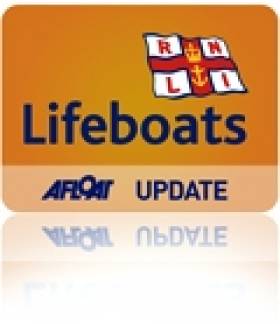Displaying items by tag: RNLI Kilmore
Crippled Sea Angling Boat Not So Crafty
Three anglers were recovered by the Kilmore Quay lifeboat last weekend after an engine failure on their vessel close to the Saltee Islands.
SAR Ireland reports that three males were on board the cheekily named Crafty Bitch on a fishing expedition when they got into difficulty.
They were forced to raise the alarm by phone as there was no VHF radio on board. The absence of radio and GPS made locating the vessel "very difficult", but the boat was eventually found after some delay and towed to port. All on board were wearing lifejackets.
Boat anglers are reminded to ensure they have at a bare minimum a VHF radio and GPS locator on board, as mobile phone signals can be unreliable offshore.
























































